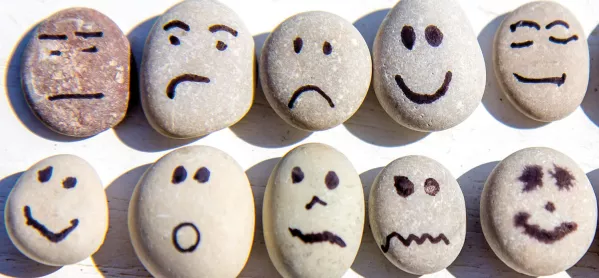The government should introduce a national measurement of children’s wellbeing, a charity has said, as its report found a quarter of a million children are unhappy in the UK.
The Children’s Society’s annual Good Childhood report, published on Wednesday, found that pupils’ happiness is at its lowest levels since 2009, with approximately 219,000 children reporting they are unhappy with their lives.
Revealed: Where, when and why your pupils are happiest
News: ‘Students are less mentally ill once GCSEs are over’
Quick read: Why are more and more pupils self-harming?
Mental health: Anxious pupil left with little education for 9 months
The charity has said schools should run an annual wellbeing survey of all secondary pupils, with the National Pupil Database used to collate the data. It said the survey could be used to link wellbeing data to social indicators such as free school meals eligibility or pupil premium.
Mark Russell, the Children’s Society’s chief executive, said: “Modern childhood is a happy and carefree time for most, yet for too many, it is not.”
“It is a national scandal that children’s unhappiness is increasing so quickly.
“Today’s young people are becoming progressively unhappy with their friendships, one of the fundamental building blocks of well-being, as well as appearance and school.
“Children are also burdened with fears ranging from worrying about the future, not having enough money to not feeling safe at school and bullying.”
He added: “Many young people tell us they feel sidelined and ignored by those in power.
“We are urging the government to introduce a national measurement of children’s wellbeing so we can really listen, respond and show young people they matter.
“Together we can build a brighter future and bring optimism and confidence back to being young.”
The study found children’s happiness at school was at its lowest point for a decade. Children whose families had experienced financial strain or poverty were more likely to be unhappy at school.
And the report found that a third - 33 per cent - of young people aged between 10 and 17 were worried about having enough money in the future.
Furthermore, the gap between boys’ and girls’ unhappiness with their appearance had narrowed, as boys’ happiness with how they looked had significantly declined since 2009.
One in 12 boys aged between 10 and 15 were found to have concerns about their appearance.
Children were also worried by broader societal issues, with 42 per cent of young people reporting they were worried about crime, while 41 per cent said they were concerned about the environment.




